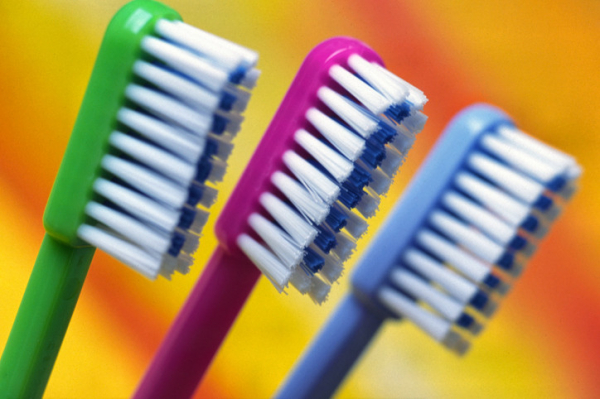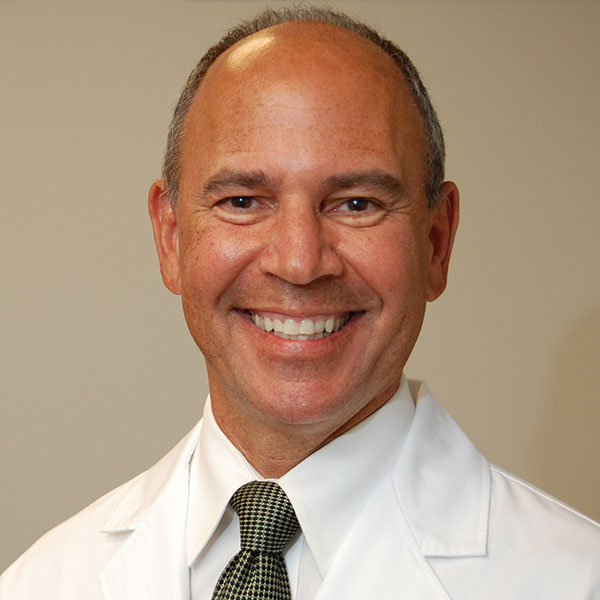
One more reason to brush your teeth?

Maybe we should add toothbrushes to the bouquet of flowers we bring to friends and family members in the hospital — and make sure to pack one if we wind up there ourselves.
New Harvard-led research published online in JAMA Internal Medicine suggests seriously ill hospitalized patients are far less likely to develop hospital-acquired pneumonia if their teeth are brushed twice daily. They also need ventilators for less time, are able to leave the intensive care unit (ICU) more quickly, and are less likely to die in the ICU than patients without a similar toothbrushing regimen.
Why would toothbrushing make any difference?
“It makes sense that toothbrushing removes the bacteria that can lead to so many bad outcomes,” says Dr. Tien Jiang, an instructor in oral health policy and epidemiology at Harvard School of Dental Medicine, who wasn’t involved in the new research. “Plaque on teeth is so sticky that rinsing alone can’t effectively dislodge the bacteria. Only toothbrushing can.”
Pneumonia consistently falls among the leading infections patients develop while hospitalized. According to the Agency for Healthcare Research and Quality, each year more than 633,000 Americans who go to the hospital for other health issues wind up getting pneumonia. Air sacs (alveoli) in one or both lungs fill with fluid or pus, causing coughing, fever, chills, and trouble breathing. Nearly 8% of those who develop hospital-acquired pneumonia die from it.
How was the study done?
The researchers reviewed 15 randomized trials encompassing nearly 2,800 patients. All of the studies compared outcomes among seriously ill hospitalized patients who had daily toothbrushing to those who did not.
- 14 of the studies were conducted in ICUs
- 13 involved patients who needed to be on a ventilator
- 11 used an antiseptic rinse called chlorhexidine gluconate for all patients: those who underwent toothbrushing and those who didn’t.
What were the findings?
The findings were compelling and should spur efforts to standardize twice-daily toothbrushing for all hospitalized patients, Dr. Jiang says.
Study participants who were randomly assigned to receive twice-daily toothbrushing were 33% less likely to develop hospital-acquired pneumonia. Those effects were magnified for people on ventilators, who needed this invasive breathing assistance for less time if their teeth were brushed.
Overall, study participants were 19% less likely to die in the ICU — and able to graduate from intensive care faster — with the twice-daily oral regimen.
How long patients stayed in the hospital or whether they were treated with antibiotics while there didn’t seem to influence pneumonia rates. Also, toothbrushing three or more times daily didn’t translate into additional benefits over brushing twice a day.
What were the study’s strengths and limitations?
One major strength was compiling years of smaller studies into one larger analysis — something particularly unusual in dentistry, Dr. Jiang says. “From a dental point of view, having 15 randomized controlled trials is huge. It’s very hard to amass that big of a population in dentistry at this high a level of evidence,” she says.
But toothbrushing techniques may have varied among hospitals participating in the research. And while the study was randomized, it couldn’t be blinded — a tactic that would reduce the chance of skewed results. Because there was no way to conceal toothbrushing regimens, clinicians involved in the study likely knew their efforts were being tracked, which may have changed their behavior.
“Perhaps they were more vigilant because of it,” Dr. Jiang says.
How exactly can toothbrushing prevent hospital-acquired pneumonia?
It’s not complicated. Pneumonia in hospitalized patients often stems from breathing germs into the mouth — germs which number more than 700 different species, including bacteria, fungi, viruses and other microbes.
This prospect looms larger for ventilated patients, since the breathing tube inserted into the throat can carry bacteria farther down the airway. “Ventilated patients lose the normal way of removing some of this bacteria,” Dr. Jiang says. “Without that ventilator, we can sweep it out of our upper airways.”
How much does toothbrushing matter if you’re not hospitalized?
In case you think the study findings only pertain to people in the hospital, think again. Rather, this drives home how vital it is for everyone to take care of their teeth and gums.
About 300 diseases and conditions are linked in some way to oral health. Poor oral health triggers some health problems and worsens others. People with gum disease and tooth loss, for example, have higher rates of heart attacks. And those with uncontrolled gum disease typically have more difficulty controlling blood sugar levels.
About the Author

Maureen Salamon, Executive Editor, Harvard Women's Health Watch
Maureen Salamon is executive editor of Harvard Women’s Health Watch. She began her career as a newspaper reporter and later covered health and medicine for a wide variety of websites, magazines, and hospitals. Her work has … See Full Bio View all posts by Maureen Salamon
About the Reviewer

Howard E. LeWine, MD, Chief Medical Editor, Harvard Health Publishing
Dr. Howard LeWine is a practicing internist at Brigham and Women’s Hospital in Boston, Chief Medical Editor at Harvard Health Publishing, and editor in chief of Harvard Men’s Health Watch. See Full Bio View all posts by Howard E. LeWine, MD

Ever worry about your gambling?

Are online gambling and sports betting new to your area? Are gambling advertisements catching your eye? Have you noticed sports and news shows covering the spread? Recent changes in laws have made gambling widely accessible, and its popularity has soared.
Occasional bets are rarely an issue. But uncontrolled gambling can lead to financial, psychological, physical, and social consequences, some of which are extreme. Understanding whether gambling is becoming a problem in your life can help you head off the worst of these issues and refocus on having more meaning, happiness, and psychological richness in your life. Gambling screening is a good first step.
Can you screen yourself for problem gambling?
Yes. Screening yourself is easy. The Brief Biosocial Gambling Screen (note: automatic download) is a validated way to screen for gambling disorder. It has three yes-or-no questions. Ask yourself:
- During the past 12 months, have you become restless, irritable, or anxious when trying to stop/cut down on gambling?
- During the past 12 months, have you tried to keep your family or friends from knowing how much you gambled?
- During the past 12 months, did you have such financial trouble as a result of your gambling that you had to get help with living expenses from family, friends, or welfare?
What do your answers mean?
Answering yes to any one of these questions suggests that you are at higher risk for experiencing gambling disorder. Put simply, this is an addiction to gambling. Like other expressions of addiction, for gambling this includes loss of control, craving, and continuing despite bad consequences. Unique to gambling, it also often means chasing your losses.
A yes doesn’t mean that you are definitely experiencing a problem with gambling. But it might be valuable for you to seek a more in-depth assessment of your gambling behavior. To find an organization or person qualified to help, ask a health care provider, your local department of public health, or an advocacy group like the National Council on Problem Gambling.
Are you ready for change?
Your readiness to change a behavior matters when deciding the best first steps for making a change. If someone asks you whether you want to change your gambling, what would you say?
|
I never think about my gambling. |
Sometimes I think about gambling less. |
I have decided to gamble less. |
I am already trying to cut back on my gambling. |
I changed my gambling: I now do not gamble, or gamble less than before. |
Depending on your answer, you might seek out different solutions. What’s most important initially is choosing a solution that feels like the right fit for you.
What if you don’t feel ready to change? If you haven’t thought about your gambling or only occasionally think about changing your gambling, you might explore lower intensity actions. For example, you could
- read more about how gambling could create a problem for you
- listen to stories of those who have lived experience with gambling disorder.
If you are committed to making a change or are already trying to change, you might seek out more engaging resources and strategies to support those decisions, like attending self-help groups or participating in treatment.
Read on for more details on choices you might make.
What options for change are available if you want to continue gambling?
If you want to keep gambling in some way, you might want to stick to lower-risk gambling guidelines:
- gamble no more than 1% of household income
- gamble no more than four days per month
- avoid regularly gambling at more than two types of games, such as playing the lottery and betting on sports.
Other ways to reduce your risk of gambling harm include:
- Plan ahead and set your own personal limits.
- Keep your entertainment budget in mind if you decide to gamble.
- Consider leaving credit cards and debit cards at home and use cash instead.
- Schedule other activities directly after your gambling to create a time limit.
- Limit your use of alcohol and other drugs if you decide to gamble.
What are easy first steps toward reducing or stopping gambling?
If you’re just starting to think about change, consider learning more about gambling, problem gambling, and ways to change from
- blogs, like The BASIS
- books like Change Your Gambling, Change Your Life
- podcasts like After Gambling, All-In, and Fall In, which offer expert interviews, personal recovery stories, and more.
Some YouTube clips demystify gambling, such as how slot machines work, the limits of skill and knowledge in gambling, and how gambling can become an addiction. These sources might help you think about your own gambling in new ways, potentially identifying behaviors that you need to change.
What are some slightly more active steps toward change?
If you’re looking for a slightly more active approach, you can consider engaging in traditional self-help experiences such as helplines and chatlines or Gamblers Anonymous.
Another option is self-help workbooks. Your First Step to Change is a popular workbook that provides information about problem gambling, self-screening exercises for gambling and related conditions like anxiety and depression, and change exercises to get started. A clinical trial of this resource suggested that users were more likely than others to report having recently abstained from gambling.
Watch out for gambling misinformation
As you investigate options, keep in mind that the quality of information available can vary and may even include misinformation. Misinformation is incorrect or misleading information. Research suggests that some common types of gambling misinformation might reinforce harmful beliefs or risky behaviors.
For example, some gambling books, websites, and other resources exaggerate your likelihood of winning, highlight win and loss streaks as important (especially for chance-based games like slots), and suggest ways to change your luck to gain an edge. These misleading ideas can help you to believe you’re more likely to win than you actually are, and set you up for failure.
The bottom line
Taking a simple self-screening test can start you on a journey toward better gambling-related health. Keep in mind that change can take time and won’t necessarily be a straight path.
If you take a step toward change and then a step back, nothing is stopping you from taking a step forward again. Talking with a care provider and getting a comprehensive assessment can help you understand whether formal treatment for gambling is a promising option for you.
About the Author

Debi LaPlante, PhD, Contributor
Dr. Debi LaPlante is director of the division on addiction at the Cambridge Health Alliance, and an associate professor of psychiatry at Harvard Medical School. She joined the division in 2001 and is involved with its … See Full Bio View all posts by Debi LaPlante, PhD